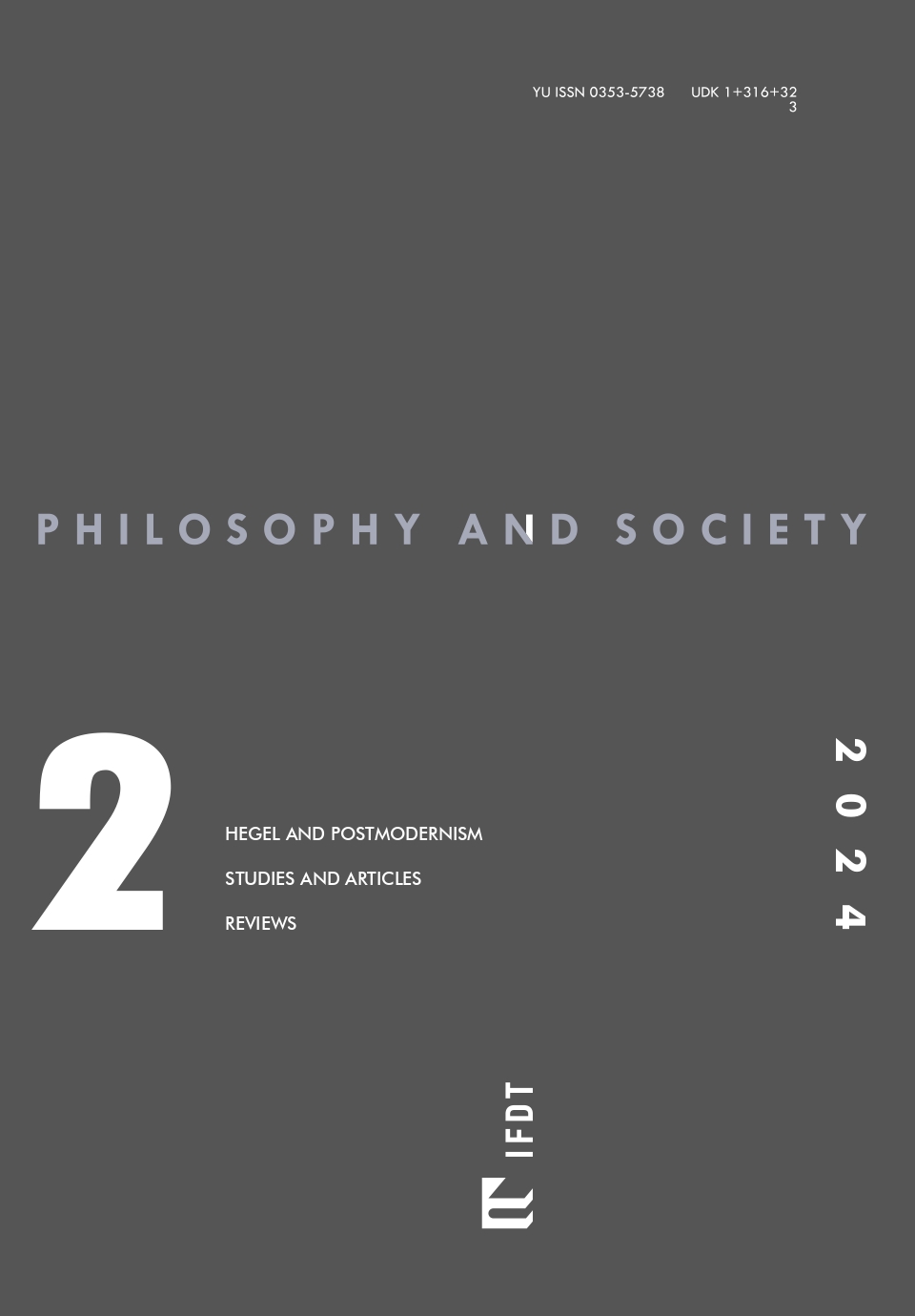Deleuze and the Hegelian State
Deleuze and the Hegelian State
Author(s): Julián FerreyraSubject(s): Philosophy, Philosophical Traditions, Political Philosophy, Social Philosophy, German Idealism
Published by: Institut za filozofiju i društvenu teoriju
Keywords: Deleuze; Hegel; State; civil society; aggregate; differential calculus; capitalism; individuals
Summary/Abstract: This paper analyses Gilles Deleuze’s political philosophy in relation to the Hegelian concept of the State. To do this, we identify three interpretations of the term “State” in Deleuze’s work: 1) as the reference point defining the three forms of socius presented in Anti-Oedipus (primitive territorial, barbarian despotic, and civilized capitalist); 2) as a defining trait of the despotic socius form; and 3) as the internalization of this form (Urstaat). Deleuze emerges as a harsh critic of the State in each of these interpretations. However, the subsequent part of the paper reveals that this critique does not advocate for societal fragmentation. By comparing Deleuze’s political philosophy with Hegel’s, we demonstrate that the forms of socius in Deleuze’s system occupy the conceptual place of the State in Hegel’s framework. Through an exploration of the role of differential calculus in the ontology of both philosophers, we establish the groundwork for a philosophical examination of the dominant social relation in the modern world (which is capitalism and not the State) and the prerequisites for a novel political socius.
Journal: Filozofija i društvo
- Issue Year: 35/2024
- Issue No: 2
- Page Range: 385-402
- Page Count: 18
- Language: English

